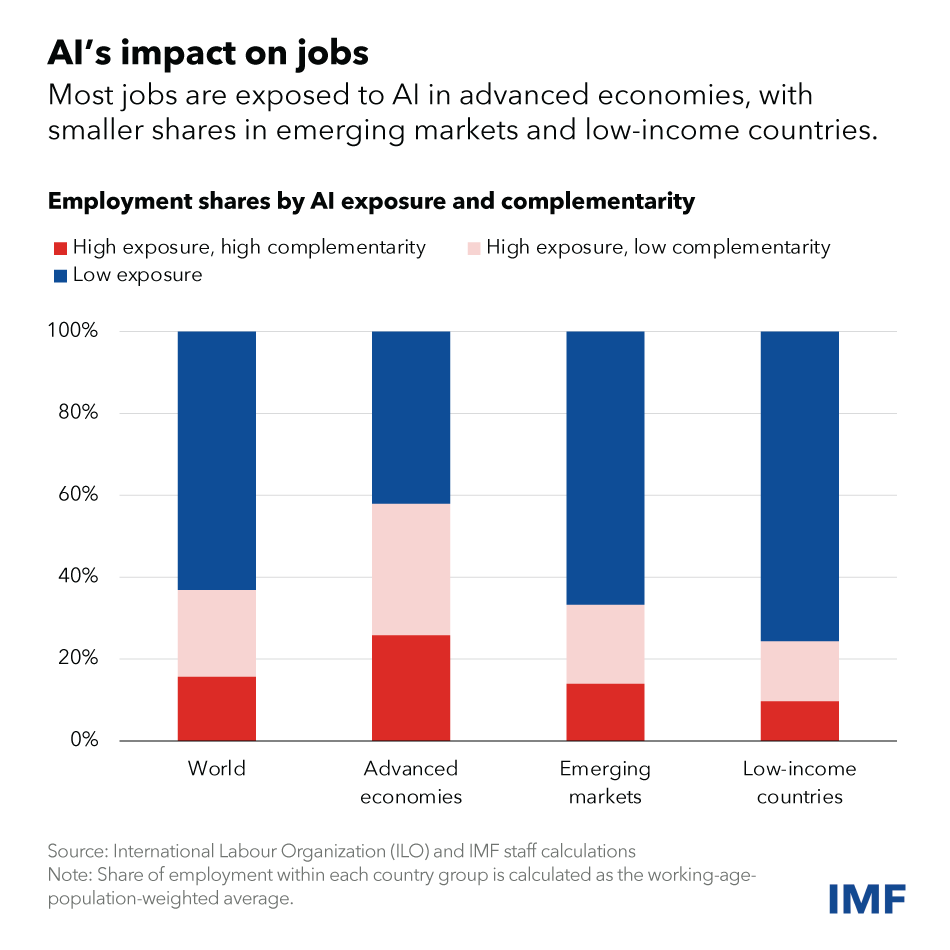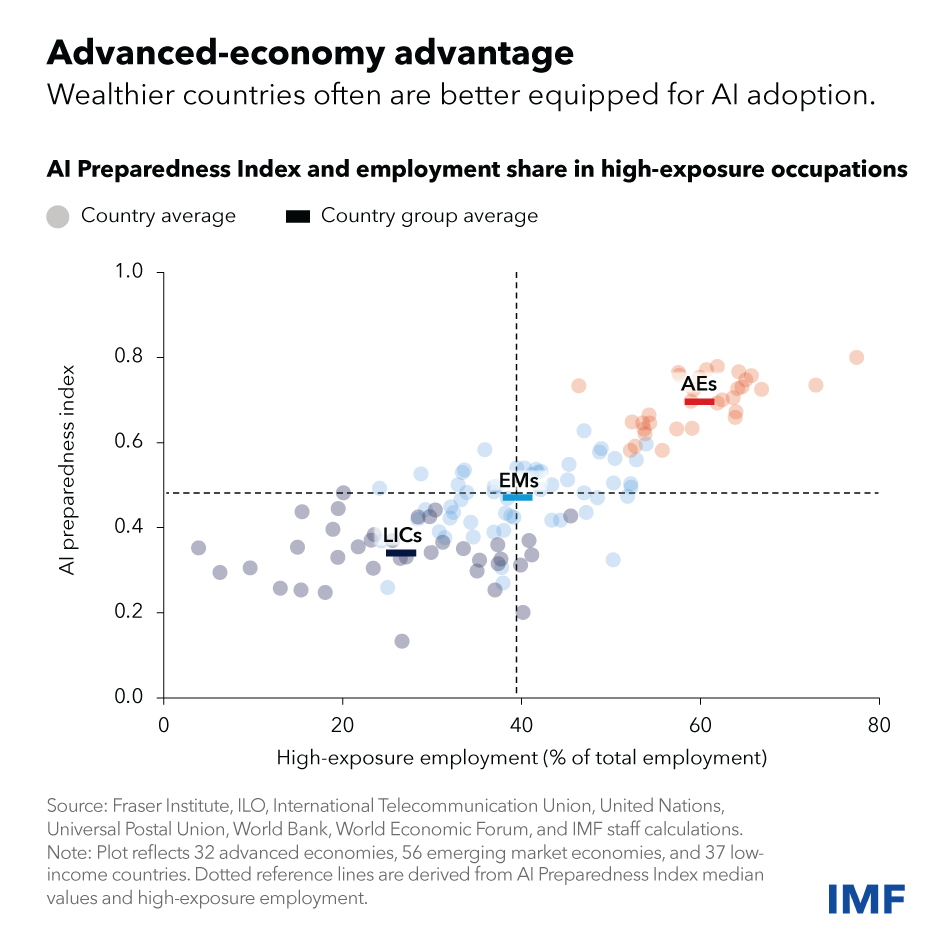In a recent report, the International Monetary Fund (IMF) issued a serious imf warning about the potential consequences of the rapidly advancing Artificial Intelligence (AI) technology on the global job market. There’s a growing concern that as AI continues to evolve, it could lead to significant job displacement, potentially exacerbating income disparities worldwide.
The AI Revolution: A Double-Edged Sword
AI has the potential to significantly boost global growth, enhance productivity, and increase income levels across the globe. However, the same technology could also lead to substantial job losses and deepen global inequality.
As AI continues to evolve, it’s becoming increasingly clear that its impact will be much more far-reaching than just the automation of routine tasks. AI’s ability to learn from and adapt to complex data patterns means that it can potentially replace high-skilled jobs, leading to significant labor market disruptions.
According to a recent IMF study, nearly 40% of global employment could be at risk due to AI. This figure is even higher in advanced economies, where up to 60% of jobs could be impacted by AI. The potential for AI job replacement is an alarming prospect that has significant implications for income distribution and social stability.
AI and Job Displacement: A Closer Look

Traditionally, automation and information technology have primarily affected routine tasks. However, AI’s ability to learn and adapt means it has the potential to impact high-skilled jobs, particularly in advanced economies. In these economies, roughly half the jobs at risk may see enhanced productivity through AI integration, while the other half could see AI replacing human tasks, leading to reduced labor demand and lower wages.
On the other hand, emerging market and developing economies are expected to be less affected by AI in the near term. However, these countries often lack the necessary infrastructure and skilled workforces to fully harness the benefits of AI, which could exacerbate inequality among nations over time.
AI and Income Inequality
AI could also worsen income and wealth inequality within countries. High-income workers who can effectively leverage AI could see significant increases in their productivity and wages, while those who can’t may fall behind. This trend could further exacerbate income inequality, leading to increased social tensions.
The IMF report emphasizes the need for comprehensive social safety nets and retraining programs for vulnerable workers. By doing so, countries can make the transition to an AI-driven economy more inclusive, protecting livelihoods and curbing inequality.
The Need for an Inclusive AI-Driven World
As AI continues to be integrated into businesses at an unprecedented pace, it’s becoming increasingly important for countries to develop effective policies to manage its impact.
To assist countries in this effort, the IMF has developed an AI Preparedness Index that measures readiness in areas such as digital infrastructure, human capital and labor market policies, innovation and economic integration, and regulation and ethics.

The index revealed that wealthier economies are generally better prepared for AI adoption than low-income countries. However, there is significant variation across countries, with Singapore, the United States, and Denmark scoring highest on the index.
Preparing for the AI Era
The IMF warning underscores the urgency for countries to act. Advanced economies need to prioritize AI innovation and integration while developing robust regulatory frameworks. This approach can help create a safe and responsible AI environment and maintain public trust.
Emerging and developing economies, on the other hand, should focus on building a strong foundation through investments in digital infrastructure and workforce development.
The AI era is here, and it’s crucial that we ensure it brings prosperity for all. Policymakers need to take the IMF warning seriously and proactively address the potential risks of AI job replacement. By doing so, we can harness the immense potential of AI for the benefit of humanity.
For more on artificial intelligence and the economy, see the December issue https://www.imf.org/en/Publications/fandd of Finance & Development, the IMF’s quarterly magazine.




